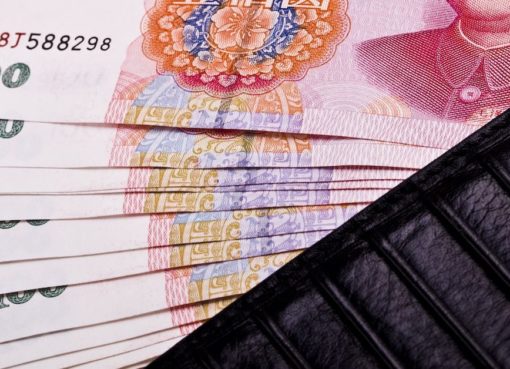Following Zhao’s resignation, Binance Coin’s value dropped, reflecting significant market volatility and investor uncertainty. What’s coming next?
The recent developments surrounding Changpeng Zhao, the founder of Binance, have brought significant changes to the cryptocurrency industry.
Zhao has agreed to step down as CEO and plead guilty to federal money laundering charges. This plea is part of a broader settlement with the United States Department of Justice (DOJ) and involves several federal agencies.
The total fees associated with this settlement exceed $4 billion, comprising a forfeiture of $2.5 billion, a fine of $1.8 billion, and personal payments from Zhao amounting to about $50 million.
Zhao’s guilty plea pertains to a single count of failing to maintain an effective anti-money laundering program.
This lapse led to Binance facilitating nearly $900 million in financial transactions that violated sanctions against countries like Iran, Cuba, Syria, and Russian-occupied regions of Ukraine between 2018 and 2022.
The U.S. Attorney General, Merrick Garland, emphasized the seriousness of these offenses, noting that Binance’s rise to becoming the world’s largest cryptocurrency exchange was partly due to these criminal activities.
The U.S. Treasury Secretary, Janet Yellen, criticized Binance for neglecting its legal obligations in pursuit of profit, leading to money flowing through its platform to various illegal entities, including terrorists and cybercriminals.
As part of the settlement, Binance will need to enhance its compliance program and appoint an independent compliance monitor.
In addition to the Department of Justice’s actions, the Securities and Exchange Commission (SEC) has also taken legal steps against Binance and Zhao.
The SEC alleges that they helped U.S. traders bypass restrictions and violated securities laws, including mishandling funds and commingling billions of dollars of customer money with the company’s own funds.
These charges have not been resolved in the current settlement, indicating ongoing legal challenges for Binance and Zhao.
How will this impact the crypto space, and what’s coming next?
How did the community react?
The crypto community has reacted vividly to the news of Zhao’s departure and the associated legal settlements.
Popular crypto trading analyst Ran Neuner posed a hypothetical question to his followers about whether the penalty of $4.3 billion and a potential 18-month sentence would have been worth the risk to build the world’s largest exchange.
Lady of Crypto, another influential figure in the community, expressed gratitude towards Zhao for his contributions to crypto adoption and recognition, despite the recent news.
Meanwhile, investor Mike Alfred suggests that Zhao’s exit could pave the way for traditional financial giants like BlackRock, Fidelity, and Invesco to dominate the cryptocurrency space, especially with potential regulatory changes like the approval of a Bitcoin ETF.
Antonio Juliano, the founder of decentralized exchange dYdX, sees Zhao’s departure as a negative for Binance, potentially leading to a lack of innovation and long-term decline.
How did the crypto market react?
Following the resignation of Zhao, the cryptocurrency market exhibited significant volatility.
The price of Binance Coin (BNB) has tumbled by nearly 10% since the announcement and is trading at $234 as of Nov. 22. This decline was one of the steepest among the top 20 cryptocurrencies.
Interestingly, the initial reaction to the announcement included a surge in BNB’s price to a month high of nearly $270, which was quickly undone as more details about the legal settlement emerged.
The impact on BNB has led to liquidation of over $6 million worth of long BNB positions in the cryptocurrency, indicating investors’ bearish outlook.
Additionally, BNB experienced a long squeeze, a market phenomenon where traders with long positions are forced to sell, further driving down the price. This reaction was mirrored in the derivative markets, where BNB funding rates also dropped significantly.
The wider cryptocurrency market also reacted to the news. Bitcoin’s (BTC) price has declined by nearly 2% in the last 24-hours, reaching $36,500, while Avalanche (AVAX) declined by nearly 7% and is trading at $20.12.
The overall market capitalization of cryptocurrencies also dipped by nearly 1.5%, reducing it to $1.39 trillion.
Meanwhile, the fear and greed index has reached a score of 67, its lowest value in nearly a month, suggesting reduced greed in the market.
What to expect next?
The regulatory landscape of the crypto market is anticipated to evolve, especially in light of recent events.
Brian Armstrong, the CEO of Coinbase, has indicated that the Finance settlement with the DOJ presents an opportunity for the industry to prioritize compliance and rule clarity.
Armstrong’s remarks suggest a potential shift towards more stringent regulatory oversight in the crypto market. He highlights the need for clear rules to foster the sector’s growth in the United States, moving away from a pattern of persistent court cases and sanctions.
The immediate reaction to Zhao’s departure is a dip in prices, but the long-term implications might be more profound. With increased emphasis on compliance and regulation, the market might move towards greater stability.
In light of the recent events, the approval of spot Bitcoin ETFs stands as a key catalyst for the crypto market, potentially ushering in a new phase of mainstream adoption and enhanced market stability.
However, it’s important to note that the crypto market is notoriously volatile and influenced by a variety of factors beyond internal industry changes.
It would be interesting to look at how the market, industry, and regulators react to the situation in the coming days. Until then, trade cautiously and never invest more than you can afford to lose.



